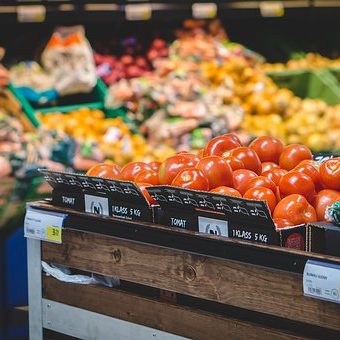Weekly Focus APAC: JD.com Unveils Programme to Tap Offline for Online Fulfilment


In this edition of Weekly Focus APAC: JD.com Unveils Programme to Tap Offline for Online Fulfilment; E-commerce Fuels £81bn SEA Internet Economy; Walmart Taps Blockchain to Trace Shrimp in India; and Singapore Helps Little India Merchants go Digital.
JD.com Unveils Programme to Tap Offline for Online Fulfilment
The Chinese e-commerce operator has introduced a supply chain programme that will tap inventory sitting at physical retail stores to fulfil online orders.
This meant that products would not need to go through traditional warehouses, distribution centres, and delivery stations before reaching the customer. Instead, offline stores now could directly deliver orders placed on JD.com, the company said.
JD.com said the new initiative encompassed different offline channels including supermarkets, convenience stores, and offline stores of some retail brands. It said the initiative would shorten the delivery time from an average of two hours to 30 minutes.
It added the programme could help boost store traffic and turnover rates for participating brands.
JD.com said the new initiative built on an existing "inventory integration project" with Walmart, where customers who purchased products from the former's online marketplace that were also available in a Walmart store, could receive the items from the store if the outlet was nearer to their home than a JD.com warehouse.
The e-commerce operator said its system would analyse various factors, such as proximity to the delivery address, to determine if it was more effective to source products from a JD.com warehouse or one of the offline channels.
Retail brands that now had joined the programme included Nestle, Coca-Cola, Tsingtao Beer, and Nongfu Spring, and encompassed products such as beverages, rice, and flour. Coca-Cola, for instance, planned to support the programme in more than 20 cities across China by end-2020, operating at 20 delivery locations, such as conveniences stores, in each city.
E-commerce Fuels £81bn SEA Internet Economy

Growing adoption of e-commerce and ride-hailing services has fuelled the Southeast Asian internet economy, which is estimated to exceed US$100bn (£81.03bn) in gross merchandise value (GMV) for the first time this year.
This figure was 40% higher than 2018 and was expected to hit US$300bn (£243.1bn) by 2025, according to the e-Conomy Southeast Asia report released by Google, Temasek Holdings, and Bain & Company. The annual study assessed six of the region's largest markets--Singapore, Indonesia, Malaysia, Thailand, Vietnam, and the Philippines--and covers key sectors within the internet economy. Specifically, this year's report looked at online travel, online media, ride hailing, e-commerce, and digital financial services.
With 10 million joining the online population last year, the number of people connected to the web in Southeast Asia reached 360 million this year--100 million more than it was in 2015.
These consumers were not only spending more time on the mobile web, many also were spending on online services and products, the report stated, noting that one in two online users--or 180 million in total--were participating in the internet economy.
Some 150 million people bought or sold goods online this year, compared to just 49 million in 2015. Consumers of ride-hailing services also climbed to more than 40 million, up from only 8 million in 2015.
The report noted that online shoppers previously logged on sporadically in search of discounts on big-ticket items such as electronics, but now were doing so more regularly to purchase lower-cost items including groceries and apparel.
This meant that online consumers were making multiple visits to e-commerce sits and shopping more regularly.
Walmart Taps Blockchain to Trace Shrimp from India
The supermarket chain is piloting the use of blockchain technology to track shrimps sourced in the Indian state of Andhra Pradesh, and exported to Sam's Club locations in the US.
The goal here was to enhance the shrimp supply chain and build customer trust in the product, said Walmart, adding that it also would help promote India as a preferred source of seafood and improve food transparency for US consumers.
According to the retail giant, shrimp was India's largest agricultural export and US its largest market, accounting for 46% of India's shrimp exports in value last year.
The state government in Andhra Pradesh, which was the heartland of shrimp farming in the country, had urged its farmers to improve quality standards and comply with US monitoring programmes in order to win the trust of US retailers and consumers.
According to Walmart, applying blockchain technology in the shrimp supply chain could improve the quality of information on the product for compliance purposes as well as enable this data to be made available to consumers.
The US National Fisheries Institute's president John Connelly said: "As one of the most traded commodities in the world, seafood has a complex and wide-reaching supply chain, which makes testing and further developing technology-assisted traceability programs an important step. It is encouraging to see a retail leader like Walmart participate in seafood blockchain testing."
Singapore Helps Little India Merchants go Digital
More than 100 merchants located in Singapore's Little India have adopted digital tools as part of a programme to help the local small and midsize business (SMB) community retain their competitiveness in a digital economy.
The merchants included retailers and F&B outlets, according to a joint statement by the SME Centre@Little India, Singapore Indian Chamber of Commerce and Industry (SICCI), Little India Shopkeepers and Heritage Association (LISHA), Infocomm Media Development Authority (IMDA), and Enterprise Singapore (ESG).
The initiative aimed to tap technology to provide a richer visitor experience and establish Little India as a more attractive tourist and retail destination for existing and new markets.
The programme kicked off by focusing on e-commerce and digital payments. For example, beauty salon Jothi's Traditional Charm embarked on online marketing and adopted the FavePay e-payment platform, which drove a 20% spike in revenue since the adoption.
E-commerce marketplace operator Shopee also provided training to help participating Little India merchants understand digital sales channels and get them onboard its online platform.







Follow Fast Growth Brands